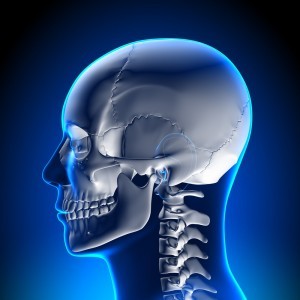 The team at Frisco Spine prides itself on providing state-of-the-art neck and back pain treatment, using modern diagnostic techniques to promote total wellness. We know that a spinal cord injury can affect more than just your back, which is why we also consider any damage to the nervous system.
The team at Frisco Spine prides itself on providing state-of-the-art neck and back pain treatment, using modern diagnostic techniques to promote total wellness. We know that a spinal cord injury can affect more than just your back, which is why we also consider any damage to the nervous system.
In order to address these matters, a neuro-spinal assessment is often required. Let’s go over the basics of these kinds of exams right now.
A Neuro-Spinal Examination: The Basics
In essence, a neuro-spinal examination will involve an assessment of damage or impairment that affect a patient’s nervous system following a spinal cord injury. This includes examining the central nervous system or CNS (brain and spinal cord) and any affects on the peripheral nervous system or PNS (nerves and ganglia beyond the brain and spinal cord).
This typically involves a full physical exam with tests specifically designed to assess issues with movement, mobility, limb strength, and feeling. Tests may also be performed to assess brain function and cognition if the brain may have been affected as part of the spinal cord injury/ailment.
Common Tests Performed During a Neuro-Spinal Examination
Here are some of the tests that are commonly performed as part of a neuro-spinal examination:
-
Mental Status Testing – This includes assessments of memory, consciousness, state of mind, mood, behavior, perception, judgment, and so forth.
-
Tests of Cranial Nerves – This includes tests that track eye movement, assess sense of smell, strength of facial muscles, sense of hearing and taste, etc.
-
Tests for the Patient’s Motor Skills and Reflexes – This includes tests that measure muscle strength, note posture, evaluate abnormal movement or motions, measure muscle tone, and check general reflexes.
-
Tests of Sensory Skills – This includes various means of noting pain, changes in temperature, and finer forms of sensation detection.
-
Cerebellar Testing – This includes methods of noting motor control, including finger-to-nose tests and assessing changes in speech pattern.
Considering the Nature of the Injury
In addition to the tests performed above, neck and back pain specialists will take great care in noting the particular nature of the injury and incident, as this may help in the proper diagnosis of a condition. The tests will often illuminate the exact nature and severity of the injury to the spine.
Noting the Patient’s Medical History
Of course, all of the above is considered in relation to a patient’s medical history. This allows medial professionals to get a better insight into how severe or minor an injury may be, if there are risks for further injury, and so forth. The patient’s medical history is especially important for figuring out the ideal treatment for the patient as well as what treatments should be avoided.
Diagnosing Problems and Formulation Solutions
Once a full examination has been performed, a neck and back pain specialist will be able to figure out the best way to address a patient’s needs. This could mean surgical or non-surgical solutions. This will also allow medical professionals the ability to provide tips for preventing further or aggravated injuries to the back, and means of strengthening the spine and neck for better health down the road.
Schedule a Consultation
For more information about your options when it comes ti addressing back pain and neck pain, be sure to contact our spinal treatment specialists today. The entire team here at Frisco Spine looks forward to your visit and helping you achieve better health and wellness.
Recent Comments